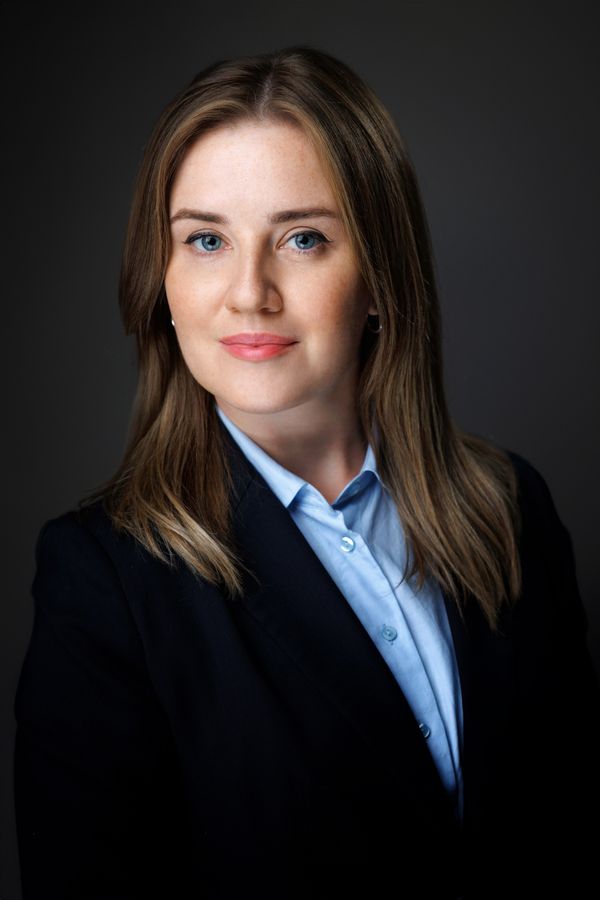At the forum called "Ready-to-Eat Food Market: New Regulatory Recipe," lawyers, businessmen and food industry professionals discussed quality and safety of ready-to-eat meals and statutory regulation of packaged food production. The event was co-hosted by VERBA LEGAL Law Firm, X5 Group, a food retail company, and the Association of Manufacturers and Suppliers of Ready-to-Eat Meals.
Russia has seen a noticeable growth of the ready-to-eat food market: over the past three years, the industry's sales increased twofold. Moreover, experts note high potential of this sector. Apart from Moscow and St. Petersburg, demand for store-bought ready-to-eat meals is also growing in the country's other regions.
In 2025, X5 Group, Russia's top food retailer, decided to spin-off its pivotal good food safety practice into a dedicated food safety unit which was headed by Elena Krupskaya, who also launched a dedicated web forum. In her address, Elena highlighted the key stages of development of the ready-to-eat food market in Russia and abroad, and also outlined the principal guidelines of the dialogue between food industry professionals.
"Today, ready-to-eat food companies sell more than just promptness and convenience. Companies are focused on offering restaurant-quality products. And as we see, the market has great prospects, but its development requires creation of the industry regulatory framework. Businesses, jointly with the government, should create legislative framework that would ensure quality and safety of products and convenience for consumers," Elena set the tone for the discussion.
The event was co-hosted by the Regulatory Practice team of VERBA LEGAL, including Senior Partner Alexander Panov, Counsel Ekaterina Tretyakova and Senior Associate Nikita Zhemchugov. Jointly with the X5 team, the Regulatory Practice team is proactively engaged in analytical and foresight work to develop doctrinal and practice-oriented regulatory environment for the ready-to-eat food market.
Maria Dmitrieva, Head of Yandex Lavka's Ready-to-Eat Food Unit, spoke about specific features of the food tech market and prospects for developing production sites. "The market is growing, that’s obvious. At the same time, consumers are very demanding of the quality, taste, freshness and safety of food products. Therefore, the most efficient development strategy is setting up your own food production, rather than working with third-party suppliers. Yet, launching food production sites is a real challenge, that, apart from customary risks, also involves a number of legal nuances related to the singularity of the ready-to-eat food sector,” Maria noted.
Within the context of the discussions, the participants agreed to focus on the statutory regulation and a new legal and regulatory framework for the ready-to-eat food sector.
Alexey Agapov, Director of X5 Group's Legal Department, noted that at present there exists no industry-specific regulatory framework in Russia. "Businesses operating in the sector are forced to adhere to the Technical Regulations of the Customs Union, Food Product Quality and Safety Law, Sanitary and Epidemiological Well-Being Law, and Consumer Protection Law. The provisions of the aforementioned regulations, however, do not fully cover ready-to-eat food production operations," Agapov emphasized.
According to Alexander Panov, Senior Partner at VERBA LEGAL, the ready-to-eat food market has become so large that it needs a clear definition of its place in the regulatory landscape among related food product categories. "You cannot keep on using the rules and regulations written for retail chains or catering outlets. The specific nature of the ready-to-eat food sector requires a "tailored" legislation. Only such an approach would help procure safety ready-to-eat meals at all stages of its life cycle, from farm to fork," Panov pointed out.
At the same time, the expert warned against the over-regulation of the industry. "The ultimate goal is to define the optimal ratio of quality and safety standards, but without excessive pressure on businesses," Panov clarified.
In turn, Sergey Belyakov, President of the Association of Prepared Food Producers and Suppliers, pointed out the necessity of developing uniform quality, production, packaging and product standards.
"Combined efforts would help us safeguard the interests of good-faith market players and jointly develop the "rules of the game". For instance, we can consider a possibility of voluntary certification of food products: good-faith producers have nothing to fear, which, at the same time, would be beneficial for the protection of interests of businesses. This, however, does not remove the need for developing statutory requirements based on the definition of the ready-to-eat food," Belyakov noted.
Further, Counsel Ekaterina Tretyakova and Senior Associate Nikita Zhemchugov told the Forum participants about the international experience in regulating the ready-to-eat food market.
"The EU law contains a definition of the ready-to-eat food. Yet, it does not allow to outline the boundaries of the food market in full. In Europe, the regulatory environment in this sector is rapidly developing and such development involves more stringent microbiological requirements triggered by the food-borne intoxication and listeriosis statistics," noted Ekaterina Tretyakova, Counsel at VERBA LEGAL.
"The United States do not have a uniform act governing the operations in this sector. Yet, there exists a plenitude of non-binding acts issued by relevant agencies. The self-regulation initiatives of the market participants are monitored as well and this constitutes one of the approaches to developing ready-to-eat food quality and safety standards," noted Nikita Zhemchugov, Senior Associate at VERBA LEGAL.
Cooper delivery service recorded an increase of the target audience subgroups within the ready-to-eat food market. According to Nikolay Bruyaka, Cooper's Business Development Director, the company has seen a noticeable increase in demand from young people and older audiences. "Young people aged 18 to 24 are increasingly buying ready-to-eat meals. At the same time, the share of older consumers grows as well, as people aged 45 to 55 are getting increasingly interested in ready-to-eat food products," the expert noted.
The event also included a fishbowl conversation to discuss quality issues and food safety at which Elena Krupskaya, X5 Group's Food Safety Director, and our colleagues from Roskachestvo, Russia's consumer rights watchdog, and Marco, a strategic marketing company, told the Forum participants about quality control practices at their production facilities, multi-level audits of partners' production facilities and development of safe packaging for ready-to-eat food products.



